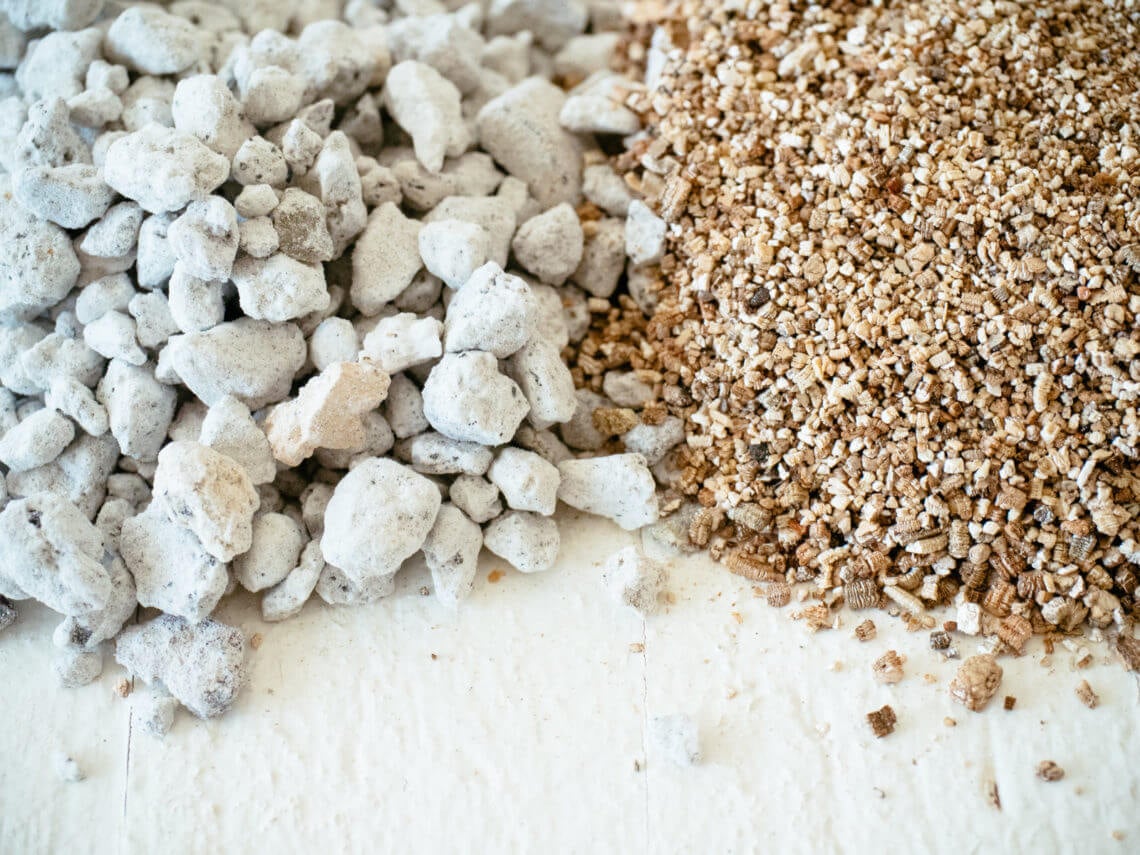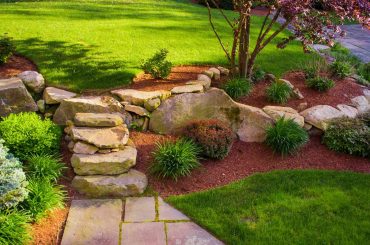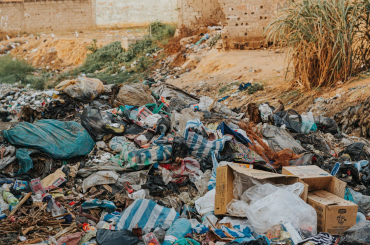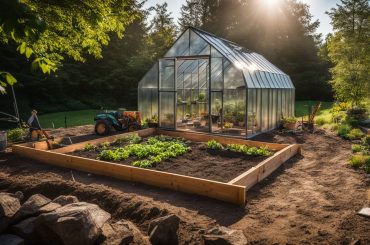Table of Contents
When you have a garden full of evergreen or flowering plants, it becomes difficult to maintain it. The soil requires proper care. Thus, you have to put something good in the soil that is beneficial for its health. It can also assure your plant’s health and development. Perlite or vermiculite can help you maintain moisture in the soil. They help the plant achieve a significant height. It is necessary for the plant’s growth process.
Now, many people get confused about vermiculite and perlite. A few people struggled to decide which solution would be best for their gardens. However, both have their own unique specialities.
In this blog, you will learn the difference between vermiculite and perlite. When it comes to providing the soil with moisture, both are favourable. They are also applicable when it comes to caring for plants; they are comparable.
What is Perlite?
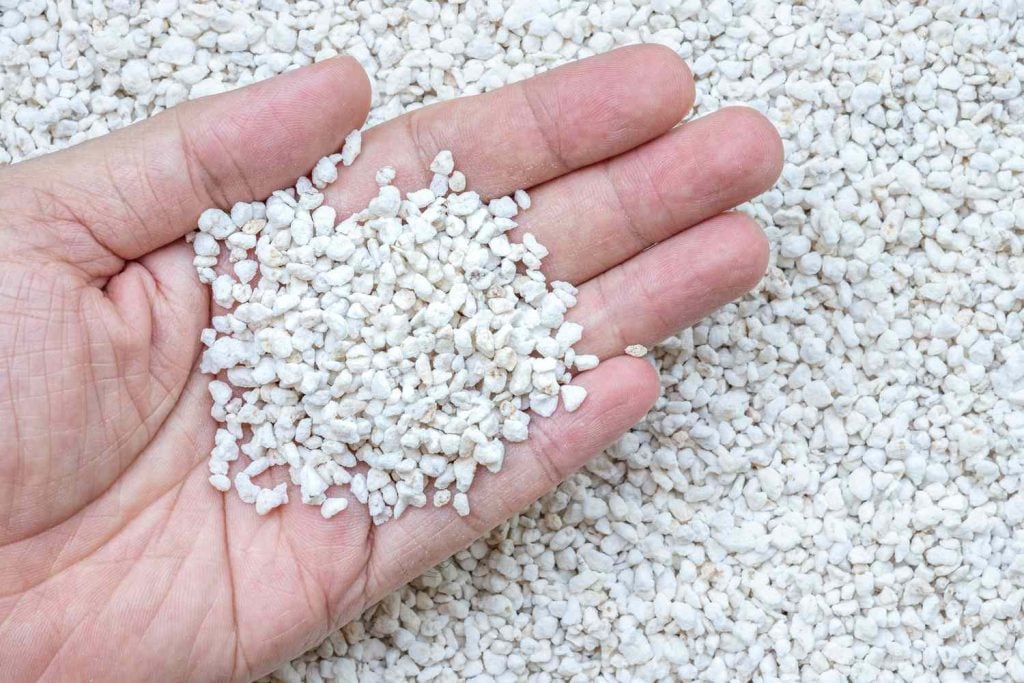
Perlite is a white, granular material that is lightweight. Pertile is made under extreme heat and pressure. The volcanic glass got extreme heat in the factory. After that, it forms the shape of white popcorn. They are lightweight and long-lasting. You can hold perlite easily, as it is not acidic. They do not consist of any kind of alkaline. Perlite can absorb water and improve the drainage of the soil. They play a vital role in a plant’s propagation and growth process. Perlite also assists the seeds in growing healthy plants. It also improves the soil’s acidity and strengthens the roots of the plants. Perlite is useful when it comes to soil aeration.
Advantages of Perlite
- The biggest advantage of perlite is that it is beneficial for the plant seeds in the propagation process. In addition, it is a complete organic item for soil moisture.
- Perlite is free from toxic chemicals and doesn’t harm the soil.
- Perlite helps the soil in the drainage process. It assists the soil in removing the excess amount of water. As a result, the soil maintains its water level adequately.
- It is easy to hold perlite as it is lightweight. Thus, you can mix it with other components effectively.
- Perlite is free from alkaline and acidic elements. Thus, it helps the soil maintain its acidic level and soil pH level. As a result, the plants grow more effectively.
Disadvantages of Perlite
- The level of nutrient retention in perlite is very low. You can use it as a soil conditioner, but it doesn’t have the ability to hold adequate nutrition. As a result, you need to fertilise the plants frequently.
- As perlite is lightweight, it can cause disruption during the process of mixing with other elements. Not only that, sometimes the plant can consume it with water which disrupts its growth process.
- Applying perlite to the garden can be costly at times. They are non-renewable organic products. So, you must focus on your budget a little bit.
Uses of Perlite
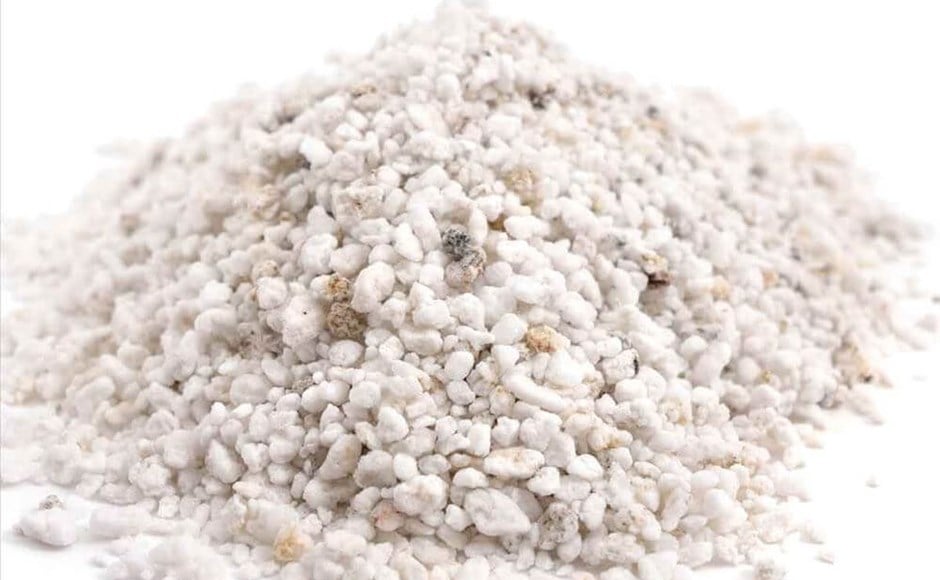
There are various types of perlite available in the UK. It includes coarse perlite, medium-grade perlite, ‘fine perlite, and others. Perlite is really beneficial for growing evergreen or flowering plants in your garden. Perlite helps to maintain the soil’s pH level and ensures the growth of the soil and the plant. You can use it for the following things:
1. Soil Aeration
Perlite is free from acidic chemicals. Thus, it maintains the soil’s aeration level. As a result, the plants get proper oxygen. It strengthens the plant’s roots and helps the plant in the process of photosynthesis.
2. Plant Propagation
You can take a few roots and put them in another pot. It can help your plants grow. Adding perlite can ensure the effectiveness of this process. It helps the seeds get proper air and humidity.
3. Soil Draining
Watering is a necessary process to grow a plant in your garden. Sometimes, overwatering can damage the growth of your plants. The perlite assists the soil in the drainage process. Thus, the level of water remains constant.
What is Vermiculite?
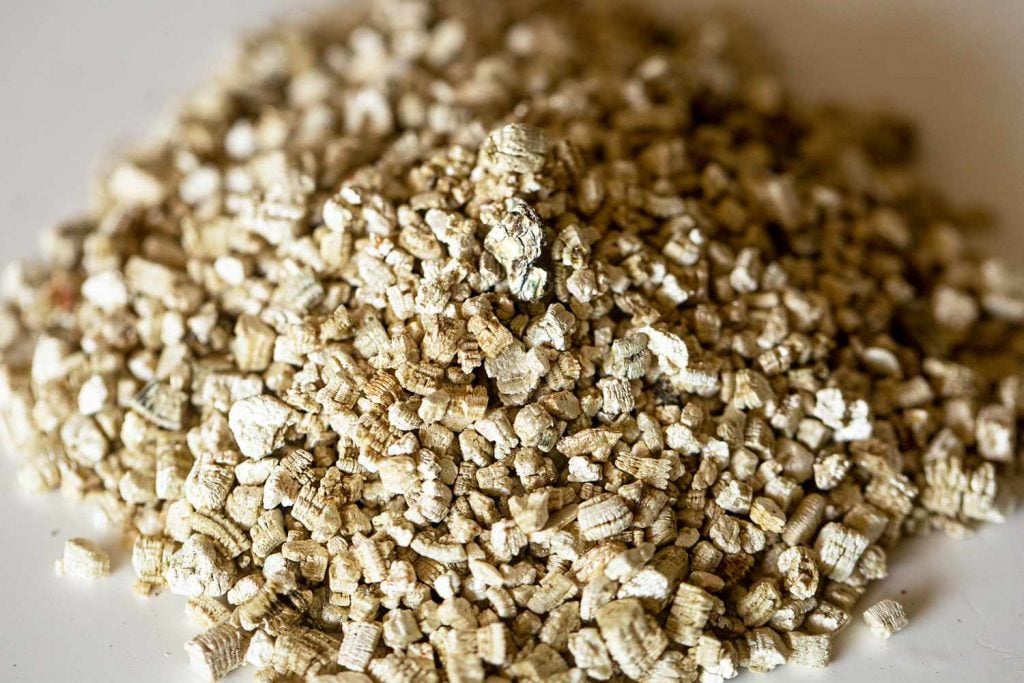
Vermiculite is a mineral that is derived from natural elements. It looks like glossy flakes but can form different colours. Vermiculite can be grey or brown. They consist of a combination of iron, aluminium, hydrated magnesium, and silicate minerals. Vermiculite can improve soil quality and ensure its growth. It almost has the same features as perlite. You can use it in the soil mixture as well. Vermiculite also ensures the growth of a plant and its seeds.
Putting vermiculite in your soil can increase the rapid growth of your plant’s roots. As a result, the plant can achieve significant height from the soil. They are natural minerals and good for your soil growth. It also ensures the root’s strength.
Advantages of Vermiculite
- Vermiculite is also an organic element that can improve the health of the roots.
- It has the ability to retain nutrients. Thus, it can hold the soil’s nutrition. Ultimately, you can use it for soil conditioning.
- Vermiculite is versatile, and you can use it without mixing it with others.
- They ensure adequate drainage of water from the soil. As a result, it maintains the health of your plant and secures its rapid growth.
- Vermiculite has a neutral level of soil pH. Thus, it also assists in maintaining the soil’s pH level and acidity.
- It is a sterile natural mineral that doesn’t harm anyone. It can help you prevent fungus infections in the plant.
Disadvantages of Vermiculite
- Vermiculite is an expensive element to put in your garden. Thus, a gardener has to embrace the budget before applying this natural mineral.
- It is a non-renewable natural mineral.
- They consist of a few chemical elements. It can disrupt the soil’s aeration for a little bit. It can also diminish the soil’s moisture levels.
Uses of Vermiculite
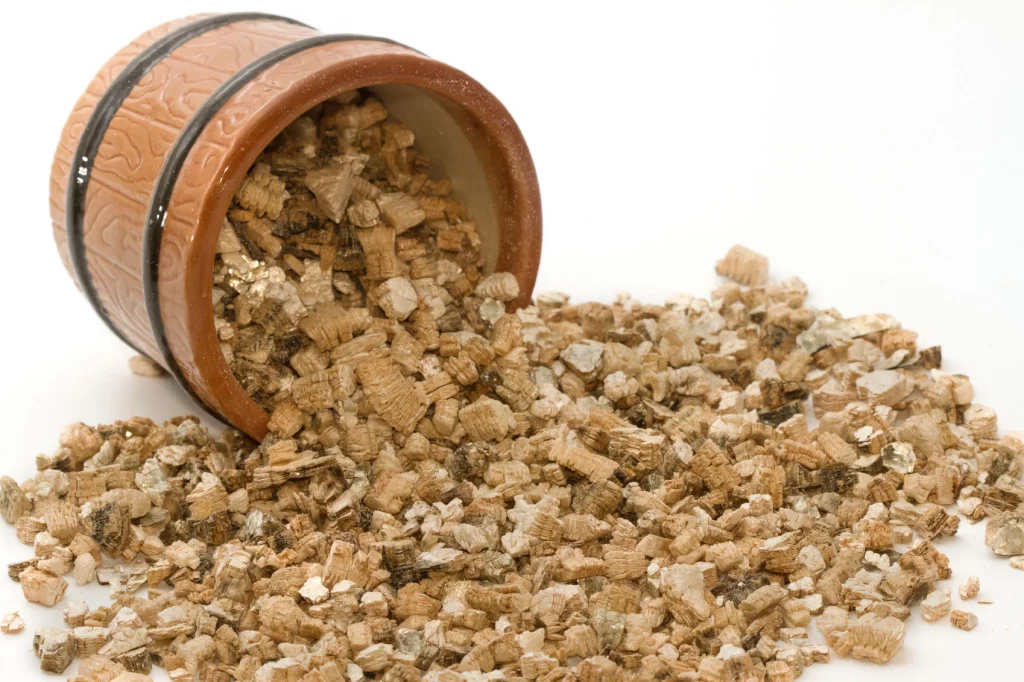
Vermiculite is derived from mica and other natural elements that are used worldwide for horticultural purposes. It plays an important role in the growth of plants and their seeds and roots. Vermiculite is used to maintain soil quality. They are a combination of iron, aluminium, silicate mineral, and hydrated magnesium. You can use vermiculite directly or mix it with other elements.
1. Soil Improvement
Vermiculite consists of natural elements. Thus, it is considered safe for the soil. Vermiculite maintains the hydration level of the soil. Sometimes overwatering damages the plant’s growth. So, vermiculite helps the soil to drain the excess water. It also helps you maintain the soil’s pH level.
2. Root Development
You can add vermiculite to your plant’s pot. It may help the seed or the roots to absorb appropriate water. As a result, the roots become strong. It also benefits the roots through soil aeration. Adding vermiculite can help your plant’s roots consume proper water. Thus, the root develops positively.
3. Plant Growth
Vermiculite assures soil development and root improvement. If the soil is strong, the plant will grow adequately. Vermiculite maintains the acidity and water level of the soil. Correspondingly, it strengthens the roots. As a result, the plant gains its accurate height. It also helps the plants grow their flowers or fruits effectively.
Differences Between Perlite and Vermiculite
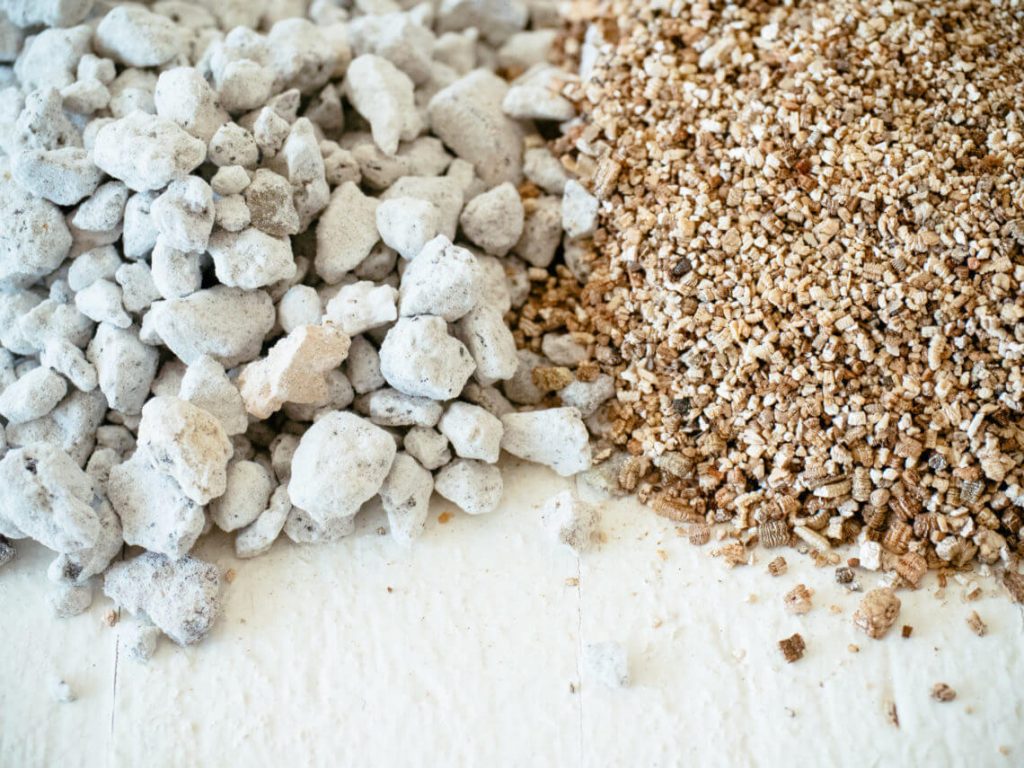
Vermiculite and perlite almost share the same characteristics. Both are organic and derived from natural elements. They have lots of dissimilarities. Vermiculite is derived from mica, and perlite is derived from volcanic glasses. Perlite is made after heating up the volcanic glasses at 1000 degrees Celcius. You can use both vermiculite and perlite to improve the soil’s quality. Both develop the growth of plants and their roots, leaves, and flowers. People worldwide used them for horticulture. Vermiculite and perlite have the following differences:
- When it comes to improving the moisture content of compacted soil, perlite is the best option. You can use vermiculite too. In this case, perlite is the best option, and it will maintain the soil’s aeration better than vermiculite.
- If you want to retain moisture in your soil, then choose vermiculite. It is the best option. If you choose perlite, it may not produce adequate results. Vermiculite has the ability to retain nutrients, which is missing in perlite. Thus, perlite may not help you improve soil moisture better than vermiculite.
- Perlite only consists of natural elements. Meanwhile, Vermiculite consists of both natural and chemical elements.
- Perlite is lightweight and can easily float away when mixed with other elements. Meanwhile, vermiculite is not lightweight and cannot float away easily.
- You can mix vermiculite directly with your soil. If you want, you can use it with other elements too. You cannot use perlite directly in your soil. If you do so, it may not be worth enough.
- Perlite is free from toxic chemicals or elements. Meanwhile, vermiculite consists of some chemical elements. It includes magnesium, silicon, etc.
- Sometimes the plant can absorb the perlite with the water. It is because perlite is lightweight. In this situation, vermiculite is a perfect choice. It is not a lightweight element. It can soak up the excess water and help the plant consume an appropriate level of water.
Similarities Between Perlite and Vermiculite
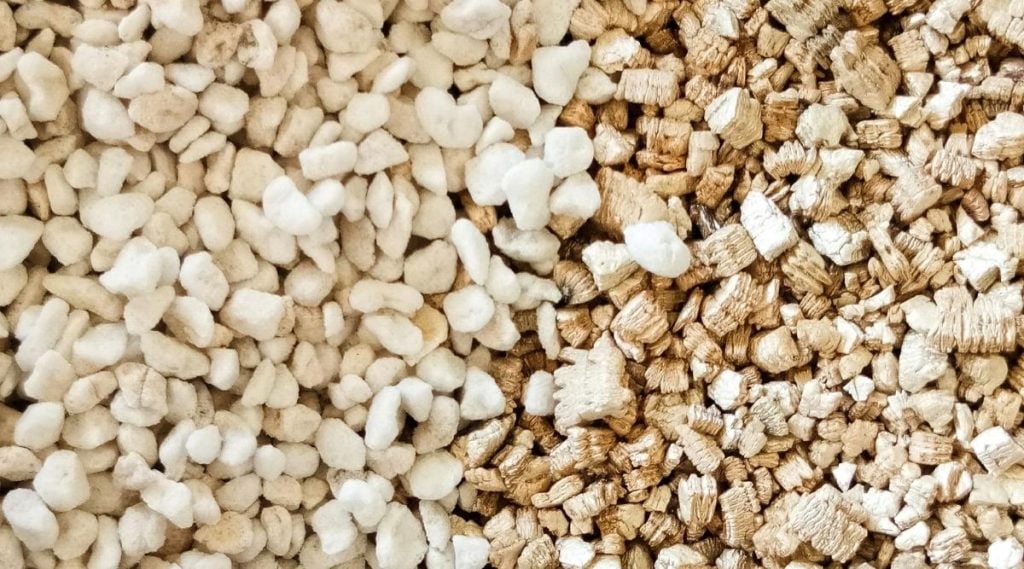
Despite having lots of differences, vermiculite and perlite share a lot of common factors. You can use both of them to ensure your plant’s development. Perlite and vermiculite ensure that the plant’s leaves, roots, flowers, and fruits will grow significantly. They have the following similarities:
- Vermiculite and perlite are both beneficial for soil aeration. In addition, they improve the soil’s acidic and water levels.
- Vermiculite is derived from mica, and perlite is derived from volcanic glass. Thus, both are natural elements. For your garden, they are all healthy and safe.
- Both of the organic elements provide an adequate drainage system. As a result, the soil removes the surplus water.
- Vermiculite and perlite maintain moisture in the soil. Both of them strengthen the roots of a plant. Thus, the roots create a strong bond with the soil. It is helpful in plant development.
- Perlite and vermiculite both have the same soil pH level. The level is around 7 to 7.5. Thus, both help in maintaining the soil pH level.
- You can use both in the course of plant propagation.
Final Takeaway
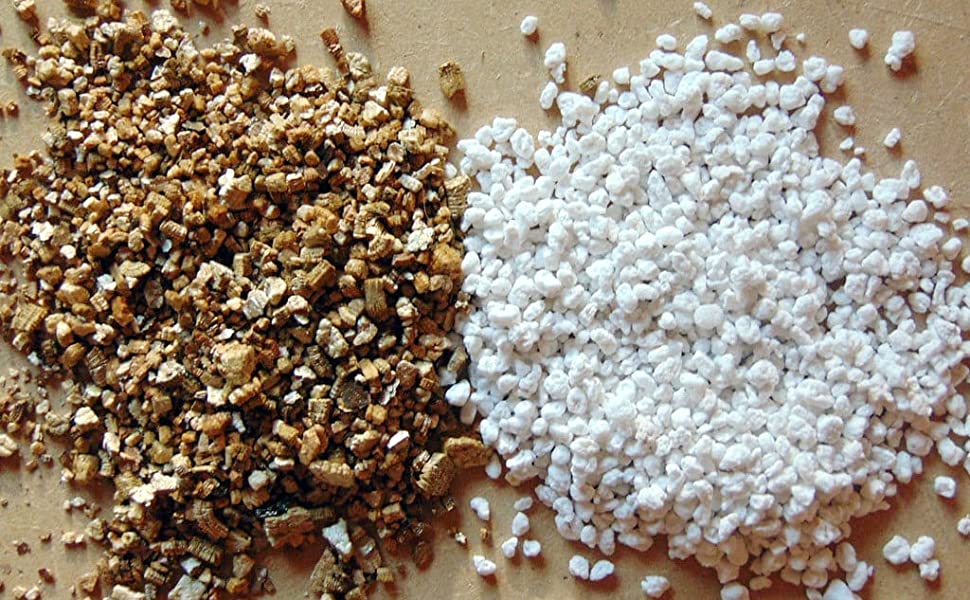
Vermiculite and perlite are organic elements that you can use in your garden. They help your soil maintain aeration, water, acidity, and pH levels. As a result, the soil remains stable. Both strengthen the root’s bond with the soil. These two organic elements ensure the growth of a plant’s leaves, flowers, and fruits. They aid the plant in growing to its highest point. Perlite and vermiculite essentially share the same qualities and purposes, even with so many differences between them.
Perlite is lightweight and doesn’t have the ability to retain nutrients. Thus, sometimes the plant can consume the perlite with water. It’s harmful to the plant’s growth. Meanwhile, vermiculite is not lightweight and has the ability to retain nutrients. Thus, it’s appropriate. Hopefully, this blog helps you understand the differences between these two organic elements of your garden. If you want, you can use vermiculite and perlite together.

